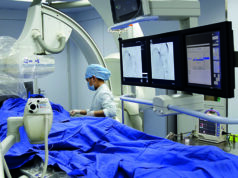The Society of Interventional Radiology Foundation—together with the Harvey L Neiman Health Policy Institute—invites US and Canada-based researchers to apply for an inaugural grant opportunity of up to US$30,000 designed to support research evaluating the cost, cost-effectiveness and quality outcomes of interventional radiology interventions and treatment approaches in comparison to other established and emerging treatments.
The new funding will allow researchers to mount studies emphasising observation and secondary data analyses that evaluate the use of image-guided, minimally invasive therapies and their relationship to patient care.
Applicants for the “Cost-Effectiveness and Quality Outcomes Research Grant” should be full-time interventional radiology faculty and trainees with an MD, DO, PhD, or equivalent, at institutions within the USA and Canada. The application must be submitted electronically through the online application, and the deadline by which materials must be received is 30 June 2014. To learn more about complete guidelines and applications, contact the SIR Foundation Grants and Research Department by phone at +1(703) 460 5580 or by email at [email protected].
“The SIR Foundation believes that strong, evidence-based research leads to improved patient care. SIR Foundation applauds ACR and the Neiman Institute for championing an effort to support researchers in interventional radiology who will work to provide firsthand, outcome-oriented results,” said Stephen T Kee, chair of the SIR Foundation board of directors and associate professor and chief of Interventional Radiology at Ronald Reagan UCLA Medical Center, Los Angeles, USA.
The Society of Interventional Radiology Foundation proactively fosters research priorities in the areas of clinical research, research policy and research education for interventional radiology. The Neiman Institute, established in 2012 by the American College of Radiology (ACR), conducts research into the role of radiology in new health care delivery and payment models—particularly quality-based approaches to radiologic care and the impact of medical imaging on overall healthcare costs.













